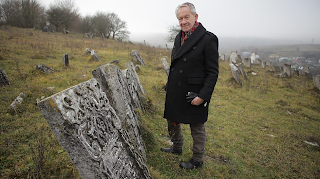Was Jesus the world's first tweeter? Well, yes according to Cardinal Gianfranco Ravasi, President of the Vatican's Council for Culture.
Ravasi says that Jesus "used tweets before everyone else, with elementary phrases made up of fewer than 45 characters like 'Love one another' "
Firstly, the cardinal is just plain wrong here. Even leaving aside the considerable difficulties in figuring out exactly what he did and didn't say, Jesus was hardly the first person to express himself using pithy sayings - there are plenty attributed to the Buddha ("The mind is everything. What you think, you become") and Socrates ("The only thing I know is that I know nothing"), both of whom lived centuries before Jesus.
Secondly, am I the only person who finds all comparisons between ancient and and modern things somewhat grating? A couple of years ago, I watched a documentary in which a TV historian described medieval castles as being "the aircraft carriers of their day." Really? Did medieval castles float? Or cruise at 30 knots? Could you even use them to launch a squadron of F/A 18 Super Hornets?
 |
| Dover Castle: Cruising Speed 0 knots. (Photo: Wikipedia) |
There's also a hint of desperation about these comparisons, as if the person making it is hoping that the perceived coolness of the modern will somehow rub off on the ancient. In Ravasi's case, the logic seems go something like this: "Twitter is cool and trendy. Jesus is a bit like Twitter. So Jesus must be cool and trendy too. Please come back to church."
Anyway, don't all the cool kids use Snapchat these days?





